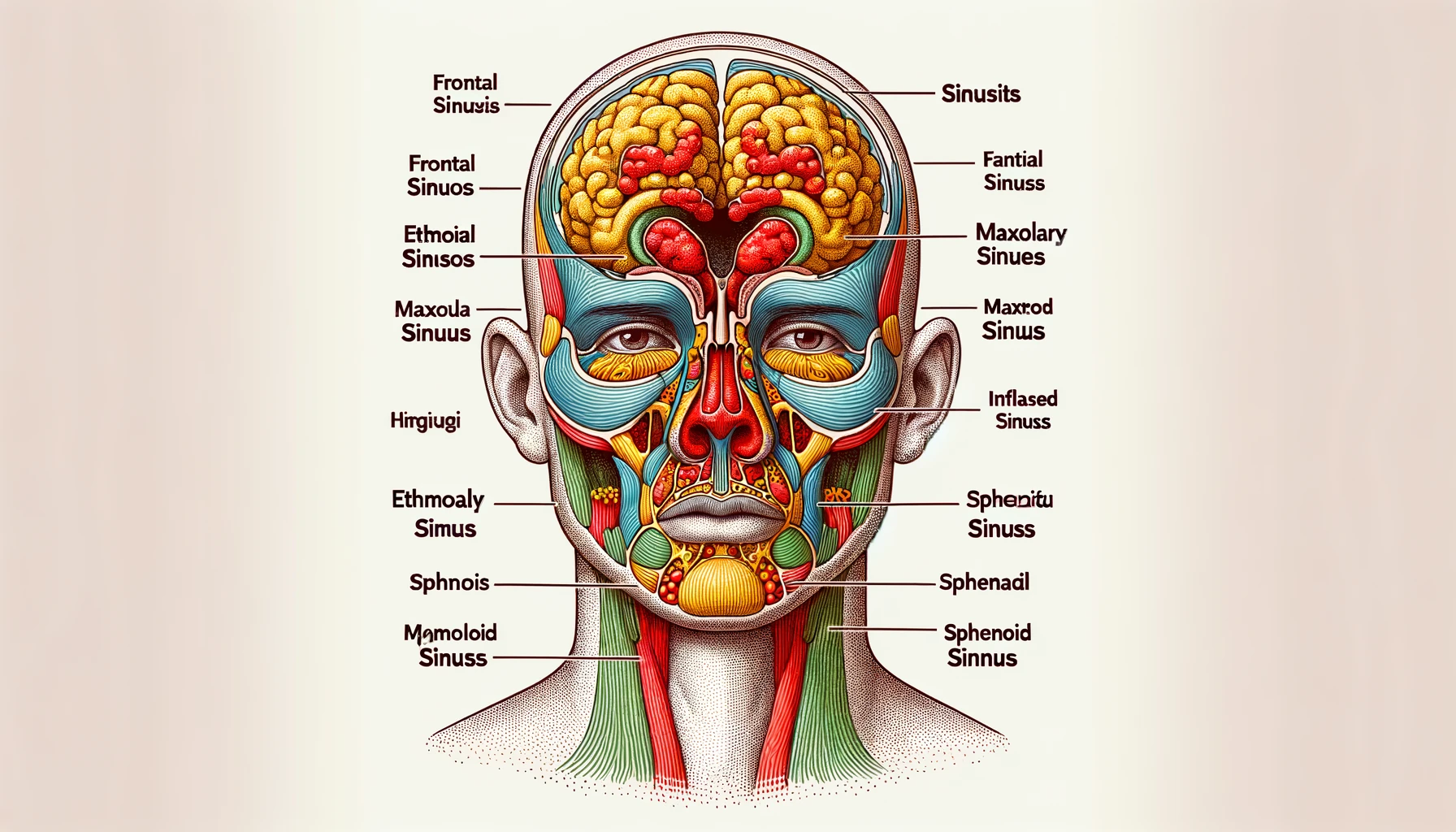Sinusitis and high blood pressure are two prevalent health issues that affect a significant portion of the population.
While they may appear unrelated at first glance, recent research has shed light on the intricate connections between these conditions.
What’s intriguing is that certain dietary strategies can play a pivotal role in managing both sinusitis and high blood pressure.
Dietary Strategies for Controlling Sinusitis and High Blood Pressure
Before we delve into the specifics of dietary recommendations, let’s take a moment to understand what sinusitis and high blood pressure entail:
Sinusitis refers to the inflammation of the sinus cavities, typically caused by infections, allergies, or irritants. Common symptoms include nasal congestion, facial pain, headaches, and a feeling of pressure in the face.
High Blood Pressure, also known as hypertension, is a condition characterized by elevated blood pressure levels. It occurs when the force of blood against the artery walls is persistently too high, potentially leading to severe health complications, including heart disease, stroke, and kidney problems.
The Dietary Connection
he Dietary Connection: Detailed Strategies
- Reducing Sodium Intake:Excessive sodium consumption is a well-known contributor to high blood pressure. The first and fundamental step in controlling hypertension is to cut back on salt. Limiting salt intake is not just about avoiding the salt shaker; it’s also about being mindful of hidden sodium in processed foods. Many canned soups, packaged snacks, and restaurant dishes are high in sodium.
- Read Labels: Learn to read food labels carefully. Look for “low-sodium” or “sodium-free” options when available.
- Cook at Home: Preparing meals at home gives you better control over the salt content of your food. Use herbs, spices, and other flavor enhancers instead of salt.
- Choose Fresh Ingredients: Opt for fresh fruits, vegetables, and meats over processed alternatives. Fresh foods naturally contain less sodium.
- Balancing Potassium:Potassium is a vital mineral that helps counteract the negative effects of sodium and plays a key role in regulating blood pressure. Incorporate potassium-rich foods into your diet to maintain a healthy balance.
- Fruits: Bananas, oranges, and melons are excellent sources of potassium.
- Vegetables: Leafy greens, potatoes, and sweet potatoes are rich in potassium.
- Legumes: Beans, lentils, and peas are also potassium-packed options.
- Nuts and Seeds: Almonds and sunflower seeds contain potassium and provide healthy snacking choices.
- Adopting an Anti-Inflammatory Diet:Chronic sinusitis is often accompanied by inflammation in the nasal passages and sinus cavities. To alleviate sinusitis symptoms, consider adopting an anti-inflammatory diet that includes foods known for their anti-inflammatory properties.
- Berries: Blueberries, strawberries, and raspberries are rich in antioxidants that combat inflammation.
- Turmeric: This spice contains curcumin, a powerful anti-inflammatory compound. Consider adding turmeric to your dishes.
- Fatty Fish: Salmon, mackerel, and sardines are high in omega-3 fatty acids, which have anti-inflammatory effects.
- Nuts: Almonds and walnuts are not only heart-healthy but also help reduce inflammation.
- Hydration Matters:Staying well-hydrated is vital for thinning mucus and relieving sinus congestion. Water is your best friend in maintaining adequate hydration levels. Herbal teas, such as chamomile or peppermint tea, can also be soothing and hydrating.
- Moderating Caffeine and Alcohol:Excessive consumption of caffeine and alcohol can contribute to high blood pressure and worsen sinusitis symptoms. While both caffeine and alcohol can be enjoyed in moderation, consider the following tips:
- Caffeine: Limit caffeine intake to no more than 400 milligrams per day (approximately 4 cups of coffee).
- Alcohol: If you consume alcohol, do so in moderation. For most adults, this means up to one drink per day for women and up to two drinks per day for men.
- Identify and Avoid Trigger Foods:Individuals with sinusitis may find that specific foods exacerbate their symptoms. Similarly, certain foods can contribute to high blood pressure. Common trigger foods might include dairy products, gluten, or allergens. Keep a food journal to identify patterns and eliminate triggers from your diet.
- Embrace Whole Grains and Fiber:Whole grains and fiber-rich foods promote stable blood sugar levels, which can positively impact both sinusitis and high blood pressure management. Consider these options:
- Brown Rice: This whole grain is rich in fiber and nutrients.
- Quinoa: A versatile grain that’s high in protein and fiber.
- Whole-Grain Bread: Look for options with “whole grain” or “whole wheat” as the first ingredient.
- Lean Proteins:Opt for lean sources of protein like poultry, fish, tofu, and legumes. These protein choices are not only heart-healthy but also beneficial for individuals dealing with sinusitis. Lean proteins provide essential amino acids without the saturated fats commonly found in red meats.
- Essential Vitamins and Minerals:Ensure that your diet provides essential vitamins and minerals that support overall health and both sinusitis and high blood pressure management.
- Vitamin C: Found in citrus fruits, strawberries, and bell peppers, vitamin C boosts the immune system, which can help with sinusitis.
- Magnesium: This mineral plays a role in blood pressure regulation. Magnesium-rich foods include spinach, nuts, and whole grains.
- Vitamin D: Exposure to sunlight and dietary sources like fatty fish and fortified dairy products can help maintain healthy vitamin D levels.
- Consult a Registered Dietitian:For personalized dietary guidance that addresses your specific needs and health goals related to sinusitis and high blood pressure, consider consulting a registered dietitian. They can assess your dietary habits, provide recommendations tailored to your unique situation, and help you create a practical and sustainable dietary plan.
Conclusion
In conclusion, adopting a mindful and balanced approach to your diet can significantly impact the management of both sinusitis and high blood pressure.
These dietary strategies not only contribute to better health but also enhance your overall well-being, making it possible to lead a more comfortable and fulfilling life while managing these health conditions.
Always remember to consult with a healthcare professional or registered dietitian before making significant dietary changes, especially if you have underlying medical conditions.


